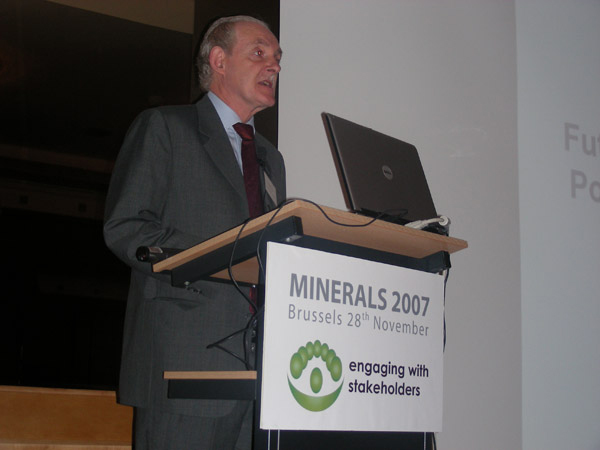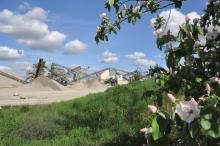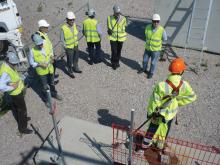
In November last year more than 130 senior executives from Europe's aggregates industry and
Engaging with stakeholders - the way ahead was the theme of last year's European Minerals Forum, which was held in Brussels on 28 November 2007. The annual event bought together more than 130 senior executives from Europe's aggregates industry and European Commission for a day of seminars and discussion.
After five years the European Minerals Forum has become a useful platform for discussion of critical policy issues by key EU policy-makers in an open and constructive environment. Organised jointly by the
Key speakers included Bertrand Collomb, Member of European Commission High Level Group and former chairman and CEO of
Before going into detailed discussion in break-out sessions, Hans Pietersen from DG Enterprise & Industry outlined the raw material initiative of the European Commission and presented his views on how the industry can better engage in this area. Duarte Figueiredo, vice-director at the Institute for the Conservation of Nature and Biodiversity speaking for the EU Presidency, recognised the involvement of the industry and underlined the importance of its efforts to halt the decline of biodiversity.
The 2007 forum's breakout groups dealt with promoting best practice in the areas of:
- Partnering with NGOs
- Working with the media
- Working with the
1066 European Parliament Working with the Scientific Community
The partnering with NGOs session recognised that expectations had risen as regulation and policy intervention had grown. Trust was also growing: partnerships between industry and NGOs were more common and mature. These developing partnerships should lead to a "win-win" situation. Clear objectives needed to be defined, "best practices" experiences should be shared and disseminated and the right partner should be chosen in view of the fragmentation of NGOs.
The group looking at working with the media considered the challenge resulting from the media usually being interested in bad news rather than positive events. Good relationships with the media were considered crucial, as it would help to improve public perception of the industry. In order to correct the image of the industry, action should be taken: building trust through the communication based on sound data, making the link from the final product back to the origin of the raw material, using modern media and investing in media training.
Following a presentation by the Austrian MEP Paul Rübig from the European Peoples Party, participants called for better coordination of EU lobbyists in the European Parliament to create a more co-ordinated way to communicate one message at all levels. This should also result in improving the industry's image and better use of EU alliances, taking into account the transparency initiative and codes of conduct. The coordination of the Non-Energy Extractive Industry Panel (NEEIP) has been described as an excellent example.
Best practice in working with the Scientific Community was the topic of session four. Participants called for a better cooperation and proposed precise steps. Governments and industry were asked to fund additional scientific work. All parties involved and in particular scientists should promote the need of raw materials for modern European society and provide scientific success stories, e.g. biodiversity and geodiversity. This is why mineral & resource economists should receive more public attention acting as a major stakeholder group. Finally, a classical challenge was to encourage politicians to take long-term perspectives needed by the industry.
• Full details of the presentation and rapporteur reports are available for download at %$Linker:
• This year's European Minerals Forum is scheduled to be held in Brussels on 26 November 2008.






